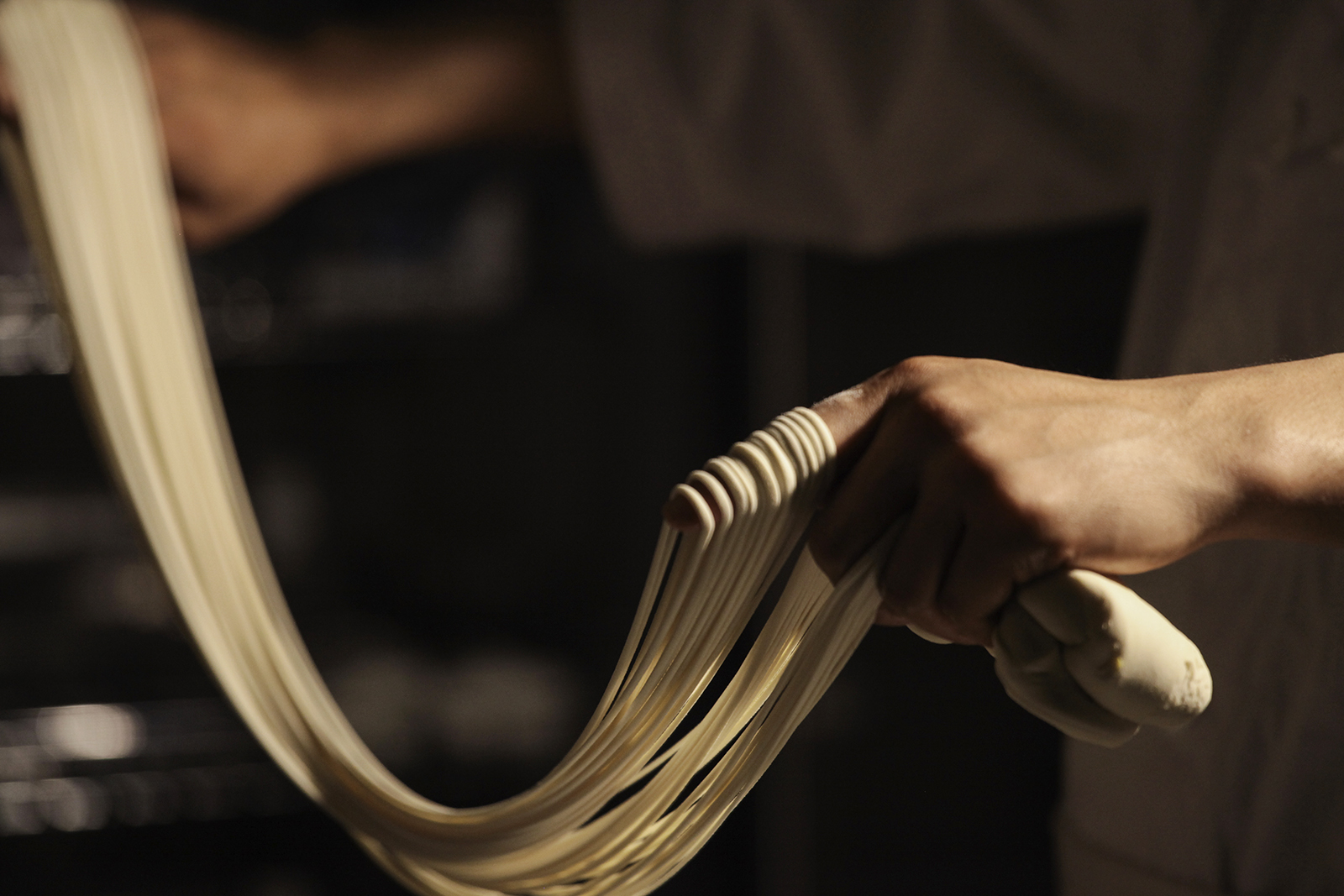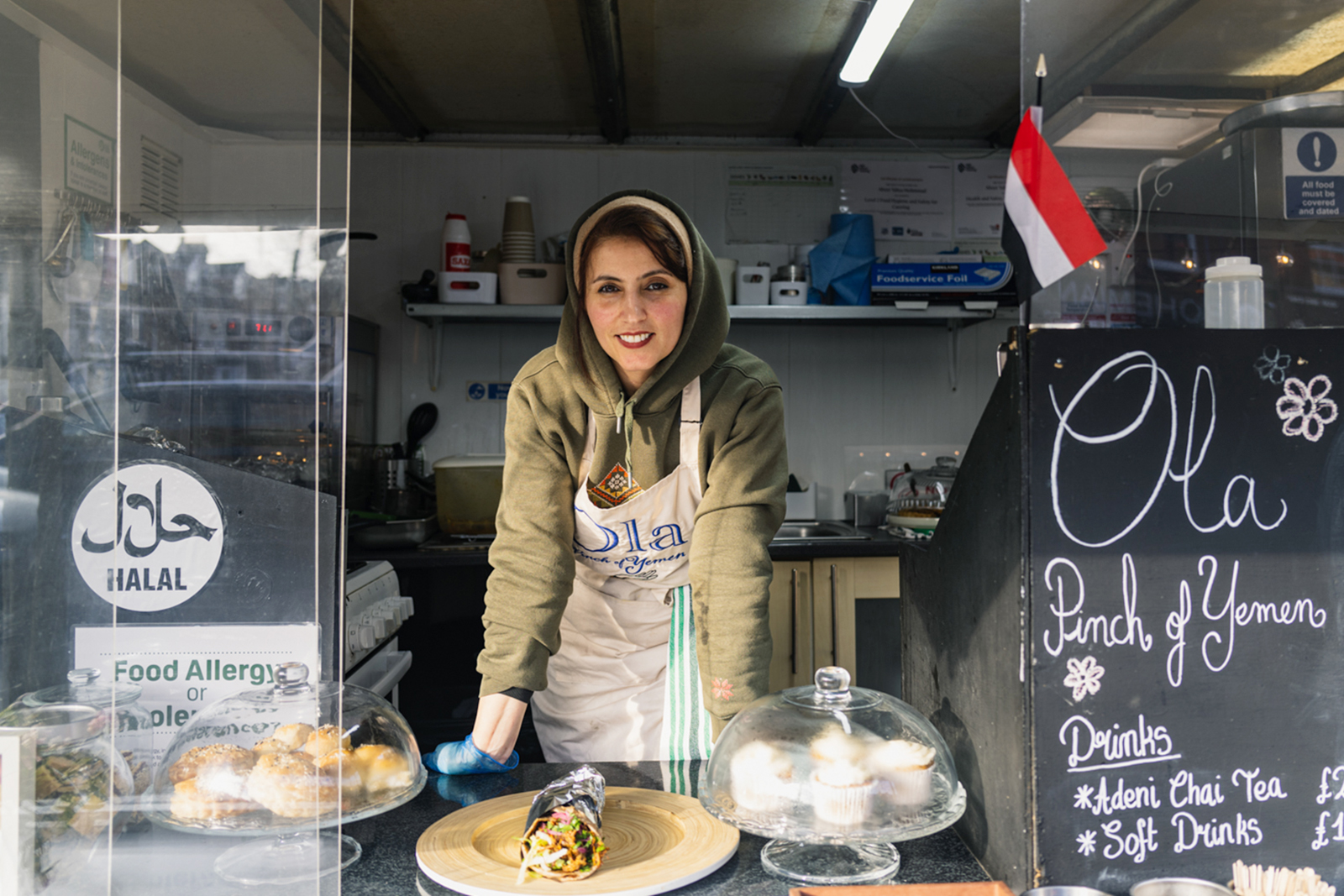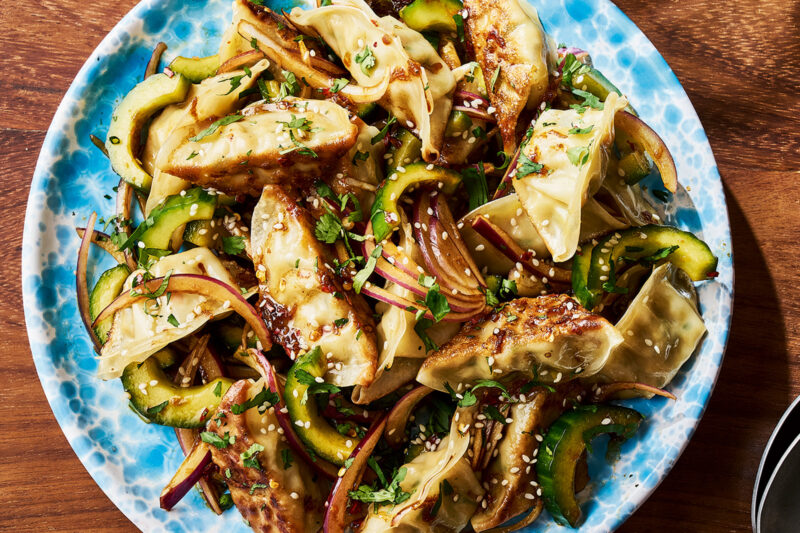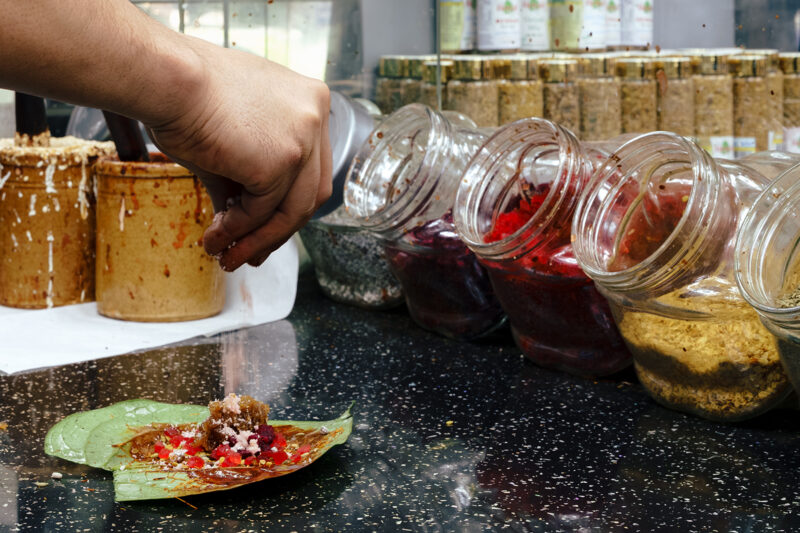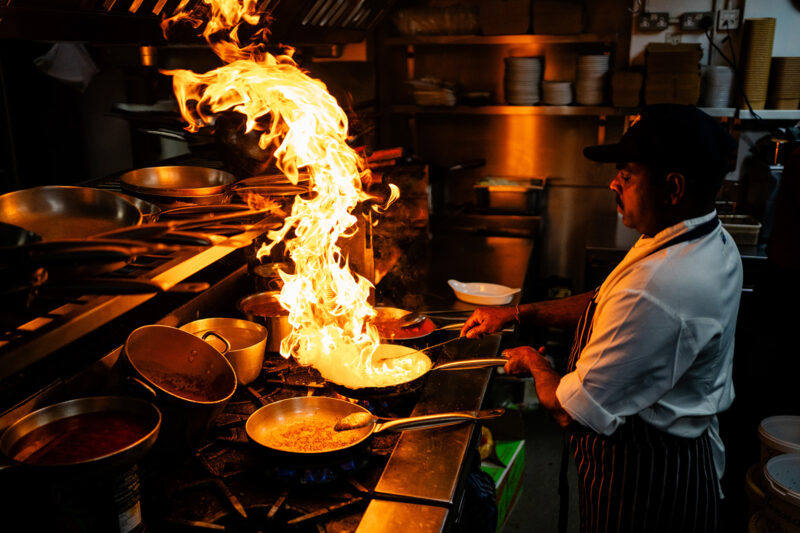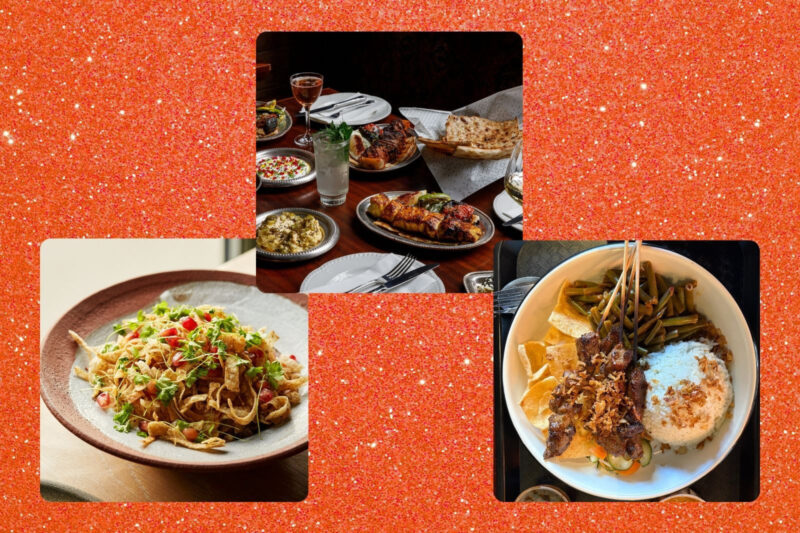The rich flavours of west Africa are enjoying a moment in the sun
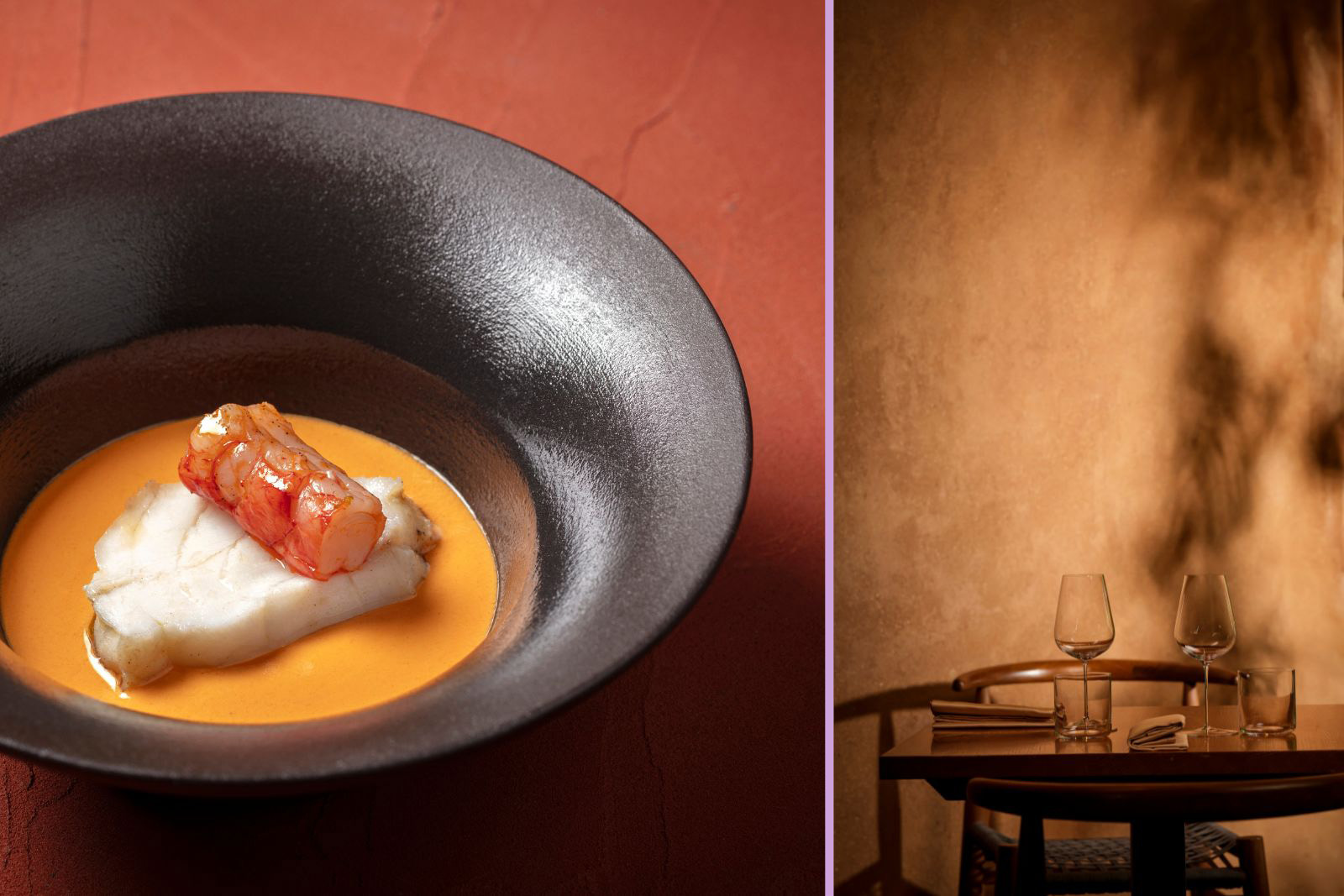
From high-end to high street, this vibrant, deeply spiced cuisine is more accessible than ever
West African food has a decades-long history in the UK, with restaurants catering to well-established diaspora communities from London to Manchester and beyond. In part thanks to the explosion of street food markets that took place in the late noughties, this rich and rewarding cuisine has since won a much wider audience.
Now, it’s not uncommon for people far outside the culture to have taken a side in the ongoing — and, frankly, unwinnable — battle for jollof rice supremacy. Nigeria v Ghana? Senegal v Sierra Leone? Take your pick. They’re all delicious, as long as you ignore Jamie Oliver’s controversial take.
As far as serious restaurant criticism goes, though, the region’s contribution to the UK’s culinary scene has until recently been largely overlooked. The 2024 award of Michelin stars to two of London’s best west African restaurants has finally introduced the cuisine to a new clientele.
Akoko, and Chishuru are both based in the Fitzrovia area of central London and run by Nigerian-born chefs who are bringing west African flavours and techniques to the world of fine dining. With both retaining their stars at the 2025 Michelin awards, and stylish new eateries such as Marylebone’s Shakara springing up, it looks like staples such as fufu and egusi are finally getting the respect they deserve.
I visited Akoko on a blistering hot July afternoon. While the restaurant does not serve halal meat, it’s safe for Muslim diners, thanks to an extensive pescetarian offering. Such options can often seem like an afterthought in other establishments, but that’s far from the case here.
Everything at Akoko is carefully curated. Tastefully unfinished walls drenched in earthy red hues. A wooden chefs’ counter overlooking an open kitchen. Hunched-over chefs jostling with tweezers and microgreens to achieve the perfect plating. The kitchen is centered around live fire cooking using premium high-density hardwoods.
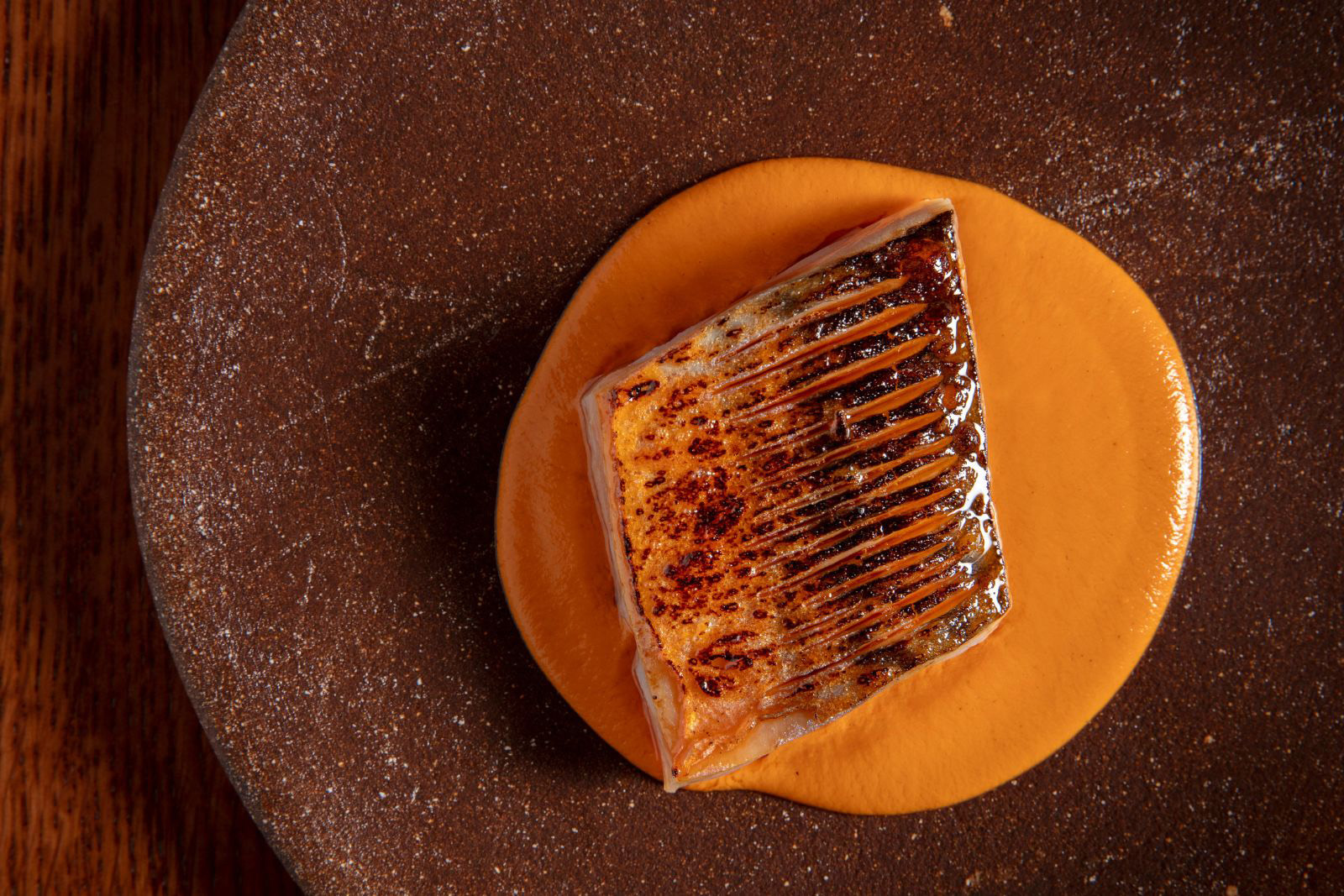
Eschewing a la carte options, Akoko offers thoughtfully designed tasting menus (£125) that take guests on an expansive culinary journey. To start, diners’ hands are misted with water and salt soap crushed with mint placed in them. I was instructed to rub them together, then water was poured over and a fresh towel quickly handed to me. This helped set the tone for the rest of the meal. Tradition was thoughtfully woven throughout the whole experience.
Soft drink options are limited, but the scotch bonnet and peach soda makes up for any lack of choice: refreshing, fruity and with an enjoyable burn at the back of the throat, it marked the start of an ongoing fiery theme. Akoko’s mission is to not adapt or alter west African cuisine to cater to other tastes, rather to invite diners to embrace and understand the unique flavours and cultural significance of its dishes. The restaurant’s website hosts a clear disclaimer that people with chilli allergies cannot be accommodated.
Over the next two-and-a-half hours I watched the chefs prepare and plate every one of the nine courses on offer. First came the plantain mosa, a perfectly spherical doughnut made from very ripe fruit, resting on a Senegalese sauce spiced with scotch bonnet. The waitress told me to eat with my hands — no faffing about with cutlery. The fritter had a beautiful umami quality and the sauce was rich, earthy and well balanced, with a welcome crunch provided by a sliver of crisp, fried plantain. My only qualm was that there weren’t four of them.
The next dish was the most surprising: a stewed onion soup, served cold with a baked oyster in the middle. When it was announced, the individual components filled me with scepticism, but I needn’t have worried. It was superb – the onions had a level of caramelisation that I felt could only have been achieved by days of labour performed by an order of ascetic monks. Meanwhile, the baked oyster delivered the kind of joy a toddler must feel when they discover the toy inside a Kinder Surprise for the first time. Raw oysters normally fill me with trepidation, but cooking righted all those slimy wrongs. One of the most memorable bites I’ve had in a long time.
Among the other dishes were two-day aged mackerel on another scotch bonnet-spiked sauce, served with a black bean pudding, and monkfish with grains of paradise — a west African spice that tastes like a blend of black pepper, cardamom, coriander, citrus, ginger, nutmeg and juniper. The monkfish was perfectly charred over the fire and the black bean pudding was incredibly satisfying, subtly spiced and providing some welcome heft to the mackerel dish.
A signature jollof course came with its own leather bound book, offering an introduction to the history of the dish. A clay pot was then brought out, the lid removed with a flourish, releasing a puff of smoke. As part of the pescetarian menu it was served with octopus. Chewy, as octopus can often be, and awkward to slice, this addition did seem somewhat out of place to me. The rice itself, however, delivered great depth of flavour, its tomato base emboldened with more piquant, fruity chilli.
The tasting experience culminated with a dessert course, which included a refreshing hibiscus sorbet and a decadent brownie. For me, the standout item was the chin-chin — a fried dough made from wheat flour and spiced with ehuru, an African nutmeg with a distinct nutty sweetness — assembled into a caramelised white chocolate ice cream sandwich. The perfect finale.
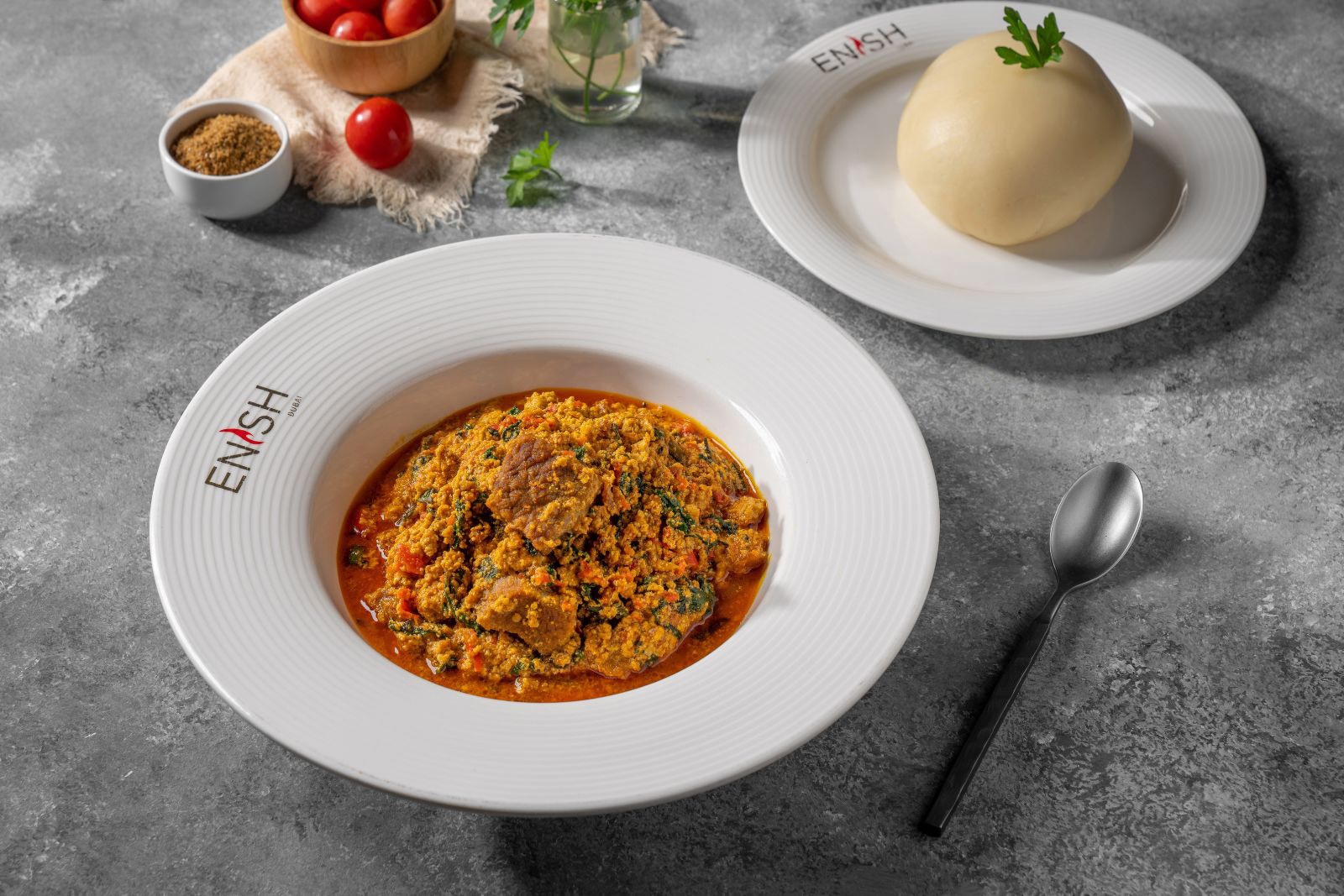
For halal-eating carnivores who don’t have a couple of hours to dedicate to a fish-centric tasting menu, the Oxford Circus branch of Enish — a Nigerian restaurant that boasts outposts in Glasgow, Manchester, London and Dubai — is just steps away from Akoko. The menu is just a few chapters short of War and Peace and includes regional classics such as suya barbecue and pounded yam.
While Akoko waits on its guests hand and foot, Enish is the host who just lets you help yourself to anything in the fridge. Dishes are placed on the table with an expectation of familiarity. The menu entry for the suya platter (£55) provided no further details and, midway through, we discovered that, alongside the grilled cuts of chicken, beef and lamb, it included tripe and intestines, which are obviously not for everyone.
As a word of warning, palm oil — a Marmite-style, love-it-or-hate-it ingredient for many people — features heavily throughout. A big plus for me, though, is that the small plates trend has not touched Enish. Portions are big enough for a small army. The fried plantain served as a side on many dishes, pounded yam soup (£28) and whole grilled tilapia (£38) were all particularly good.
While west African cuisine is by no means new to the British public, it is enjoying a well-deserved moment in the sun. With high-end and high-street restaurants bringing their own versions of its best-loved dishes to a whole new audience, it may be only a matter of time before Jamie shares his take on okra stew.
 Newsletter
Newsletter


